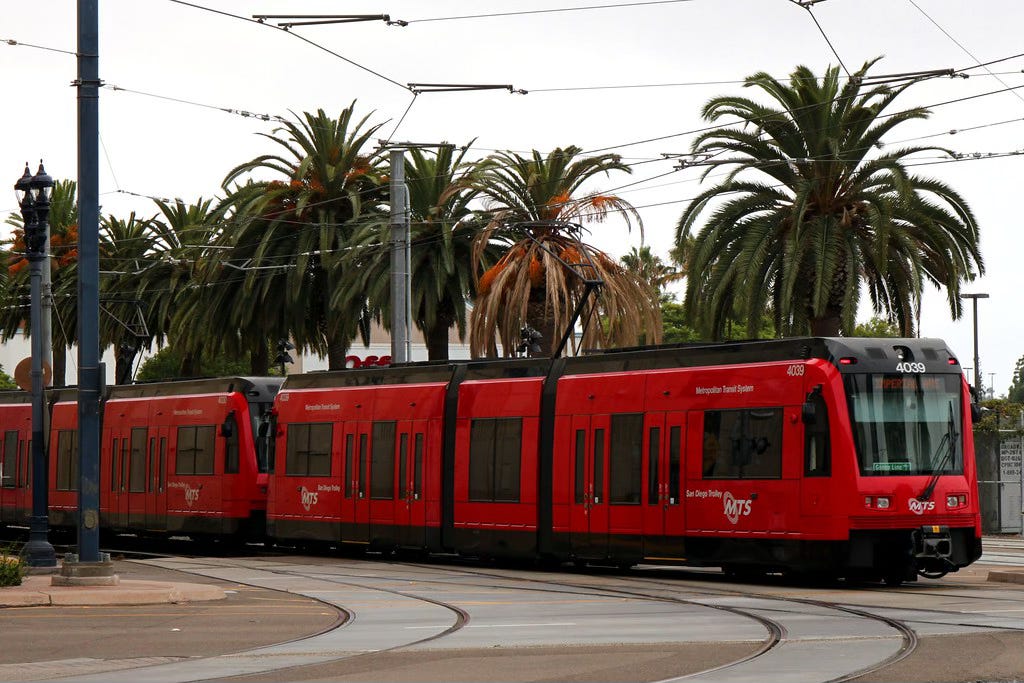From Chula Vista to Oceanside, revenue measures are crowding the ballot this year as local governments do what they can to offset a significant loss in income from the state. In most cases, if cities, school districts, and the county can’t gather more money via these ballot measures, the result will be budget cuts, some so devastating that they will take years to recover from. This would end hopes for progress on things like education, infrastructure, transit, and basic city services, bring in scarcity, and deepen previously existing inequities.
As Doug Porter points out in his excellent survey of these revenue measures, “Unfortunately, there is no politically achievable way to do this in a progressive manner. So, we get asked to raise the rate at which many consumer items are taxed. This means people with less pay more and people with more are barely inconvenienced.” Thus, the result is we are consistently asked to support regressive taxes rather than progressive ones because local government has virtually no ability to enact more progressive measures.
At the state and federal levels, the struggle to tax the rich and corporations while occasionally successful, is nearly always met with a well-funded opposition willing to spend big during elections to save themselves from having to pay their fair share. Of course, the efforts of the billionaire class and the corporate world to stop progressive taxation goes beyond opposing ballot measures to electing corporate Democrats in Sacramento who oppose raising taxes and lobbying folks, like our own Governor Newsom, to reject things like a state wealth tax or a split roll on Proposition 13, which would impact corporate rather than individual property owners.
The result of this situation is that even in super blue California, efforts to raise stable, ongoing revenue from the uber rich and corporations to fund the needs of the state and, by proxy, local governments are largely checked resulting in the roller coaster ride of boom-and-bust cycles of state funding.
Hence the flood of local measures and bonds nearly every cycle, particularly in rougher times. That history and context aside, the larger question for voters is whether they want to be pennywise in the immediate moment but pound foolish over the long haul.
Yes, we will pay a small amount more in taxes, but the price is more than worth it when one considers what the long-term cost of letting our infrastructure and services get starved of revenue will be over time. In sum, virtually every problem from homelessness to public safety to educational inequities to climate adaptation to potholes and delays in government services will be made worse if we starve local governments of funding.
It has long been the cheap shot game of the right to blame government for not being able to solve problems while gutting budgets so you can blame it some more and then make the argument to privatize government services. But the reality is that if you want not just to stop cuts but to improve and expand services, you should vote yes on these measures.
Here in the City of San Diego, that means supporting Measure E to stop the reduction of everything from essential city services to public safety and improvements to infrastructure. If you care about the people who maintain your parks, fight fires, and work for the city, a vote for this will also help protect many of them from losing their jobs. And don’t even start to complain about potholes if this loses.
Things will only get worse and the answer from the opposition will always be to come in and sell off the commons to the private sector to save us. Historically, San Diego has brought in less revenue than other California cities of comparable size which has hampered our ability to maintain our infrastructure, provide quality services, and forge a better region for all of us even in the best of times. So, if you want a less inequitable, more progressive San Diego, vote yes on Measure E.
The biggest deal at the county level is Measure G, an initiative to fund transit infrastructure, get more buses and trains moving throughout the city, help address transit inequities, preserve local habitats, fight climate change, and do all the work with local union labor. It is supported by community groups, labor, environmentalists and social justice advocates who know that it represents a real opportunity for San Diego to more toward a better future where our transit infrastructure is no longer a subpar affair compared to most other big cities in the United States. In sum, this one is a very big deal if you are concerned about what kind of city we will be living in for decades to come.
Let’s go, San Diego! Vote yes on Measure G for a better future for all of us. Think about the city that you want to build.

